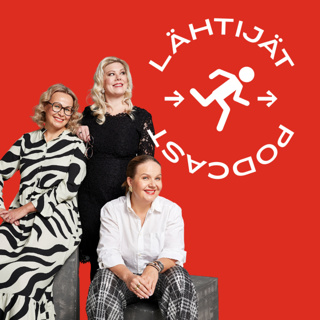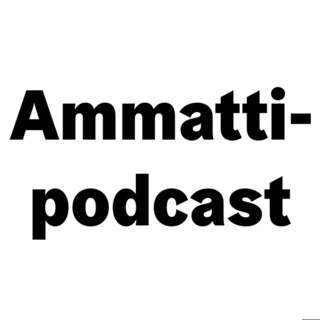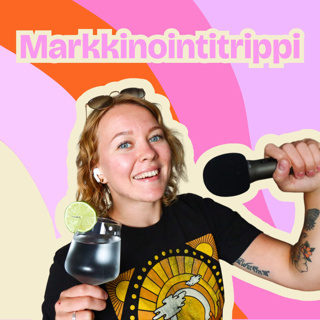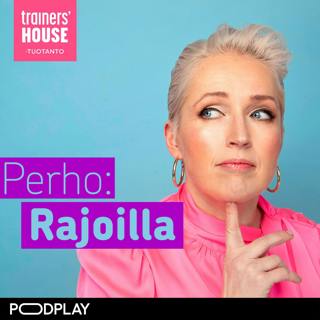
The Basics of Growth Marketing: Engagement & Retention
After achieving product-market fit and starting to gain users, how do startups then avoid the "leaky bucket" problem of losing users as quickly as they gained them? By focusing on user engagement and retention, startups can not only keep their hard-won customers but also ensure that each new cohort of users gets more and more value out of their product.This episode is part two in a two-part series on the basics of growth. Featuring a16z general partners Andrew Chen (formerly of Uber and author of the book, The Cold Start Problem) and Jeff Jordan (formerly of OpenTable, eBay, Disney, and more), in conversation with Sonal Chokshi, the conversation goes deep on many aspects and nuances of engaging and retaining users: from how network effects come into play and if there is really a magic number or "aha" moment for a product to who are the power users and the power user curve for measuring, finding, and retaining those users.For a deeper discussion on user acquisition, check out last week's episode, the first part of this series.
6 Huhti 202233min

The Basics of Growth Marketing: User Acquisition
Once known as “growth hacking”, the concept of Growth has now evolved into an entire discipline that spans marketing, product management, user experience, and more. Why? After achieving product-market fit, startups need to capitalize quickly on that initial traction to capture and retain more users and market share before the competition does, and building an efficient and resilient growth strategy is a critical component.This episode -- one of two in a series -- focuses on the user acquisition aspect of growth. Featuring a16z general partners Andrew Chen (formerly of Uber and author of the book, The Cold Start Problem) and Jeff Jordan (formerly of OpenTable, eBay, Disney, and more), in conversation with Sonal Chokshi, the discussion also covers the nuances of paid vs. organic marketing (and the perils of blended CAC); the role of network effects; where does customer lifetime value (LTV) come in; and much more. Because at the end of the day, businesses don't grow themselves.
30 Maalis 202221min

The Great Data Debate
Over a decade after the idea of “big data'' was first born, data has become the central nervous system for decision-making in organizations of all sizes. But the modern data stack is evolving and which infrastructure trends and technologies will ultimately win out remains to be decided.In this podcast, originally recorded as part of Fivetran's Modern Data Stack conference, five leaders in data infrastructure debate that question: a16z general partner and pioneer of software defined networking Martin Casado, former CEO of Snowflake Bob Muglia; Michelle Ufford, founder and CEO of Noteable; Tristan Handy, founder of Fishtown Analytics and leader of the open source project dbt; and Fivetran founder George Fraser.The conversation covers the future of data lakes, the new use cases for the modern data stack, data mesh and whether decentralization of teams and tools is the future, and how low we actually need to go with latency. And while the topic of debate is the modern data stack, the themes and differing perspectives strike at the heart of an even bigger: how does technology evolve in complex enterprise environments? We're re-running this episode as part of a special report on Future.com, the Data50: the World's Top Data Startups, which covers the bellwether private companies across the most exciting categories in data, from AI/ML to observability and more.
24 Maalis 202227min

Principles for Work and Life
In the face of great uncertainty, how do you make decisions? Can you really apply the lessons of the past to the present and the future, to navigate seemingly new situations and get what you want out of business and life? By deeply understanding cause-effect relationships -- clearly expressed, shared with others, overlaid with data, back-tested, modified -- you can build a set of principles for dealing with the realities of whatever situation you're in, observes Ray Dalio, in this episode from 2018 and in conversation with a16z's Alex Rampell and Sonal Chokshi, Dalio's book Principles: Life and Work originated as an internal company document that was posted online years ago and has been shared widely since. His insights on how to create your own recipe book to draw upon in moments of great change is as relevant as ever. The conversation covers everything from the differences between private and public investing, and between startups and big companies -- to questions of getting timing right, how people, teams, organizations, and even nation-states can evolve through principles like "believability-weighted idea meritocracies," and more.
16 Maalis 202250min

How the Internet Happened
In his book (and podcast), Brian McCullough chronicles the history and evolution of the internet -- from college kids in a basement and the dot-com boom, to the applications built on top of it and the entrepreneurs behind them.General partner Chris Dixon chats with McCullough about How the Internet Happened -- and more broadly, about how tech adoption and innovation happens. They discuss lessons learned, how innovation doesn’t happen in a straight line, and what the past can tell us about the next phase of the internet and technology.
10 Maalis 202247min

Technologies & Threads Through the Fabric of Our Lives
original episode notes and transcript here: https://future.a16z.com/podcasts/textiles-technology-science-math-cultures-civilization/Longtime podcast showrunner (2014-2022), primary host, and editor Sonal Chokshi shares three best-of episodes as she shifts gears and the show goes on hiatus until relaunched with a new host. The third of these three special rerun episodes is a conversation that originally took place in October 2020, in the midst of the pandemic – and perfectly captures the signature identity of this show until now, and Chokshi's work, which is at the intersection of technology and humanity. In it, she and Virginia Postrel, author of the book The Fabric of Civilization: How Textiles Made the World cover everything from science and math across several fields, to commerce to management & measurement, to the always-meta narrative of HOW innovation happens… As a reminder: the a16z marketing & Future team will be putting this feed on hiatus while they relaunch it with a new host; in the meantime, you can continue to follow Sonal's work both here at a16z and other projects on Twitter @smc90. Thank you as well to our brilliant audio editors, expert guests, and several others here -- but most of all, thank you to YOU: for listening, sharing, engaging, and coming along with us on this journey the past decade! Stay tuned for more.
21 Helmi 20221h 12min

Innovating and Deciding, for Companies and People
original episode notes and transcript here: https://future.a16z.com/podcasts/innovating-in-bets/Longtime podcast showrunner (2014-2022), primary host, and editor Sonal Chokshi shares three best-of episodes as she shifts gears and the show goes on hiatus until relaunched with a new host. The second of these three special rerun episodes is a conversation that originally took place spring/summer 2019, pre-pandemic (ah, that we could remember that time!) – between a16z co-founder Marc Andreessen and Sonal interviewing author, consultant/advisor, and former pro poker player Annie Duke, on one of her first few appearances with us. It’s a conversation quite unlike her other conversations, and one in a series of special joint interviews Marc and Sonal did. So there's a lot of high-speed talking, but the three cover a broad range of topics relevant to both businesses and individuals: on skill vs luck, on outcomes vs process, on asking the right questions, on how to communicate in probabilities within an organization or team, and, on how NOT making a decision is also a decision and why that matters. Be sure to also check out this feed for the followup conversation with Annie, Jeff Jordan, and Sonal on the specifics of HOW to Decide as well -- the practical and organizational implementations. (Because the a16z Podcast became an early go-to for book authors to release their books, Annie agreed to share her next book with us first.) But overall, these evergreen episodes are really all about INNOVATION, which is another signature theme in defining the identity of the a16z Podcast…
20 Helmi 202248min

Geo-engineering and the Power of Narrative
original episode notes and transcript here: https://future.a16z.com/podcasts/pleistocenepark-geoengineering-iceagebiome/Longtime podcast showrunner (2014-2022), primary host, and editor Sonal Chokshi shares three best-of episodes as she shifts gears and the show goes on hiatus until relaunched with a new host. The first of these three special rerun episodes is a conversation that originally took place in summer 2017, but both the work discussed in here – on making a really wild (quite literally wild;) geo-engineering idea at massive scale real – is still actively, relevant, and frequently discussed today (it’s on bringing back lab-grown woolly mammoths, which was also discussed in the 2020 documentary with Stewart Brand, We Are As Gods). But it's also all about how we humans can and do use the power of narrative to drive great feats of change, including engineering. This has been a signature theme in forming the identity of the a16z Podcast, and the conversation that follows is one that takes place among three tech & science editors, including one of our former colleagues (who also was a host on this podcast for 4 years).links: https://www.theatlantic.com/magazine/archive/2017/04/pleistocene-park/517779/https://www.weareasgods.film/
19 Helmi 202231min






















